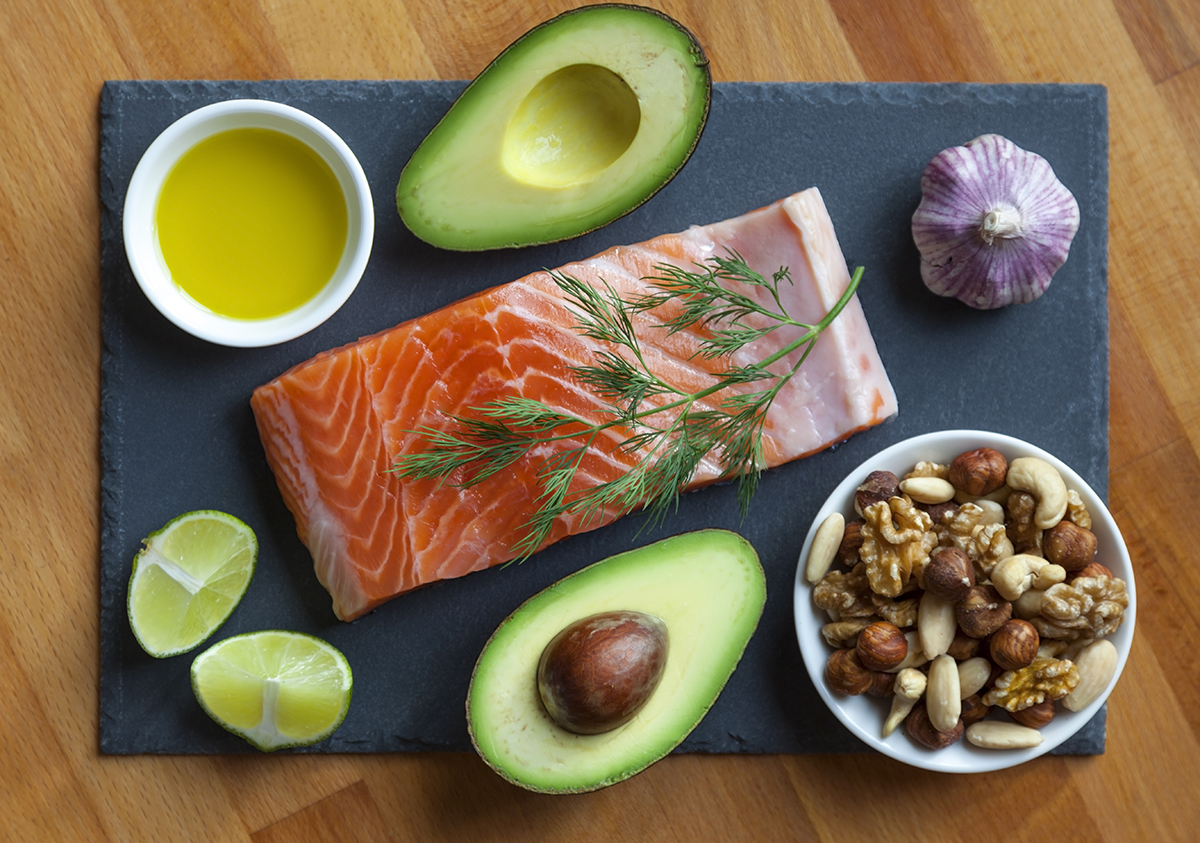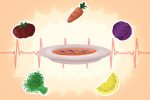If you’ve spent any significant amount of time chatting with folks who belong to the online fitness community, chances are you’ve heard something about the ketogenic diet. The high-fat regiment has been trending in online communities along with other extreme diets, such as the primal diet, and has generated incredible results for many dieters.
The basic model for the ketogenic diet consists of extreme carbohydrate restriction (down to fewer than 50 grams a day), meaning adherents must eliminate all grains, potatoes, beans, legumes and most fruits from their meal plan. Fatty meats, cheeses, eggs and butter are staples of the ketogenic diet, as are green vegetables.
Proponents of the diet maintain that, by removing sugar and grains from your life, you can effectively enhance your metabolism. For example, because protein can metabolize as sugar in the body if eaten in excess, by avoiding gratuitous amounts of the macronutrient, you enable your body to begin burning into its fat stores, rather than its glucose surplus, for energy.
This physical state is known as “ketosis,” and once the dieter enters this state, they, hypothetically, turn into a fat-burning machine with a limited appetite designed to help them naturally restrict calories.
Like most students, I entered 2018 with a few extra pounds I hoped to lose. I had heard many positive things about the ketogenic diet online, the logic seemed grounded in reality and I’m already somewhat of a meat lover, so I decided to give the concept a try. I lost 13 pounds in six weeks and rarely felt hungry on the diet. Intermittent fasting, or going long periods of time between meals, became the norm for me, as I simply wasn’t hungry.
After a couple months on the diet, though, weird things began to happen to my body. The breaking point, though, came when I got two periods in one month. The primary indicator that something was seriously wrong for me was when I got two periods in one month, which prompted me to look more deeply into the side effects of the weight-loss plan for women.
Unfortunately, there isn’t much scholarly data on the effects of the ketogenic diet on women, simply because much of the data is flawed or biased by the success men seem to have on the diet. Many case studies only included women as minorities and lacked specific data on the effects the diet had on them.
Because men seem to do so well on the diet, the problems women had on the ketogenic diet were largely shrouded by male successes in these case studies. The fact remains, however, that women are biologically and hormonally different from men, and the drastic nature of the ketogenic diet affects hormones.
The extreme constitution of the ketogenic diet causes most people to experience something called the “keto flu,” which is characterized by irritability and fatigue. Sometimes nausea is also a symptom of the keto flu. This is because the body is adjusting to utilizing fat stores for energy instead of glucose. Most people adapt to the diet after a week or two and claim to feel great once they’re fully in a state of ketosis.
This adjustment is less easily made for many women, however. One negative side effect of the ketogenic diet for all dieters, is that the diet has a tendency to raise cortisol levels. Cortisol is also known as “the stress hormone” and when a person’s cortisol levels are raised, it can stimulate the adrenal gland and cause irritability in the dieter.
This irritability is only further exacerbated by the diet’s effect on insulin and leptin levels in women, which leads to imbalances in female sex hormones. This explains why I was so grouchy while I was on the diet. Imbalances in hormones can cause sleep disturbances and mood swings. The ketogenic diet seems to seriously impact female hormones due to its extreme nature.
What is great about the ketogenic diet is that it causes the participant to really think about how much of their normal diet consists of simple carbohydrates. Simple carbs are empty calories and should be eliminated from a healthy diet plan.
Even grains like wheat bread or whole grain pasta are calorie dense and should be limited. But the ketogenic diet’s severe limitation of complex carbohydrates, such as fruit or beans, is what makes the plan worrisome.
Men seem to thrive on the diet as is credited in many case studies. Women differ so drastically from one another hormonally that it is difficult to make a real assessment, but many do have problems on the ketogenic diet. The important thing is to listen to your body.
Many women do just fine on the diet; especially if they began the diet hoping to lose a large amount of weight. Lots of women have negative side effects, however, it just seems to be due to the fact that women are biologically different from men.
It is important to listen to your body’s cues in order to determine whether or not the diet is healthy for you, even if you are losing weight rapidly. Rapid weight loss isn’t always an indicator of health.
Women who have been on the diet long enough to “adapt” should look for cues to discern whether or not the diet is safe for them. Irregular menstrual cycles, hair loss, depression, anxiety, fatigue and digestive issues are just a few things to look for in determining whether or not the diet is safe for you.
There is some evidence that, while men seem to adapt well to lower carbohydrate diets, women might thrive on the Mediterranean diet, which emphasizes lean meat and lots of fruits, vegetables, and healthy fats like olive oil. I am not certain there is one right diet for anyone, but it is important to note that if a diet is making you feel less than healthy, you should probably try something different, no matter how cult like its adherents are. This article from Proper Good has more information about diets similar to keto.
The problem with many of these cult like diet plans, such as keto, is successful dieters swear by them and tend to blame other dieters if their health is impacted by the diet. This cult like mentality leads many successful dieters to claim unsuccessful participants must have just done the diet wrong. It simply couldn’t be the diet’s fault.
Unfortunately, human bodies differ greatly from each other, and there is no one master diet plan for everyone. If there were, the obesity epidemic could be eradicated quite easily. Maybe, however, the simplest diet plan of all is the place to start. Eat real food and be active. That could be the key to changing your life.

















